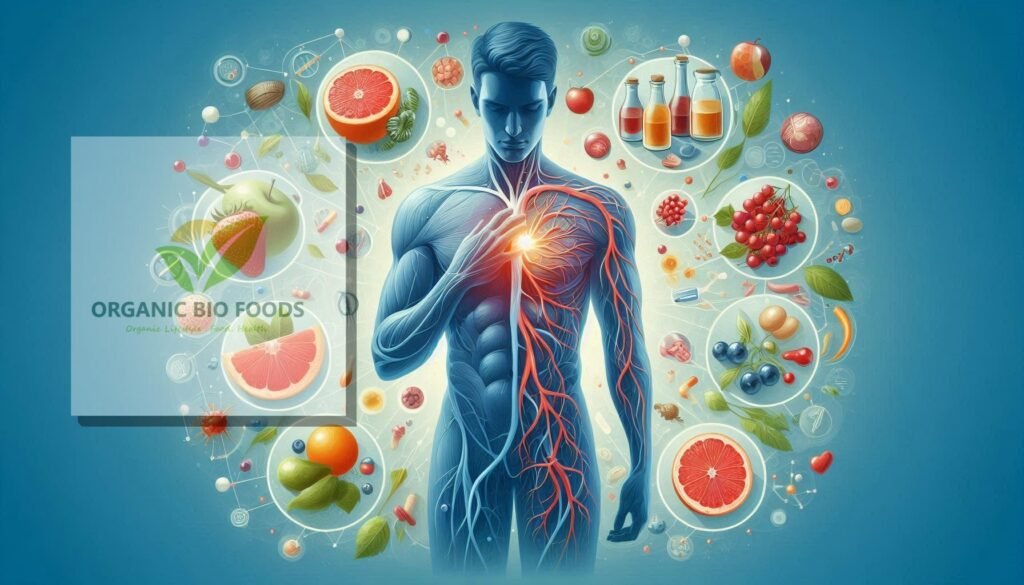We hear a lot about antioxidants and free radicals, but what are they, and why should we care? Free radicals can harm our bodies by causing cell damage, while antioxidants work to protect us from that harm. Let’s dive into what these terms mean, why they matter for our health, and how we can balance the two to keep our bodies strong and healthy.
What Are Free Radicals?
Free radicals are unstable molecules that can damage cells in the body. These molecules are naturally produced during metabolism, the process your body uses to create energy from food. They can also come from external sources, like pollution, cigarette smoke, or exposure to UV rays from the sun.
In small amounts, free radicals aren’t necessarily bad. In fact, they play some important roles, like helping to fight infections. However, when free radicals accumulate in high levels, they can cause oxidative stress, leading to damage in our cells, proteins, and even DNA. This damage can contribute to aging and various diseases, including cancer, diabetes, and heart disease .
What Are Antioxidants?
Antioxidants are compounds that help neutralize free radicals, preventing them from causing harm. They donate electrons to free radicals, which stabilizes them and reduces their ability to cause damage. Antioxidants are found naturally in many foods, especially fruits and vegetables.
There are different types of antioxidants, including vitamins (like vitamin C and E), minerals (like selenium), and other compounds like flavonoids and polyphenols found in plant-based foods. These substances are critical in maintaining a balance between free radicals and antioxidants, keeping oxidative stress at bay .
How Free Radicals Damage Your Body
When free radicals outnumber antioxidants, oxidative stress occurs, and this can lead to many health issues over time. Here are some of the ways free radicals can harm your body:
1. Cell Damage and Aging
Free radicals can damage the cells in your body, which accelerates the aging process. This damage can make skin appear wrinkled, less elastic, and more prone to age spots. Free radicals attack collagen and elastin, proteins that keep skin firm and youthful .
2. Increased Risk of Chronic Diseases
Long-term oxidative stress is linked to the development of chronic diseases, including heart disease, cancer, and neurodegenerative disorders like Alzheimer’s disease. Free radicals can damage blood vessels, leading to the buildup of plaque that increases the risk of heart attacks and strokes .
3. DNA Damage
Free radicals can damage the DNA in your cells, which may contribute to mutations that lead to cancer. They can also interfere with the body’s ability to repair DNA, further increasing the risk of diseases .
How Antioxidants Protect Your Body
Antioxidants play a crucial role in keeping your body healthy by defending it against free radical damage. Here’s how they work to protect your cells and promote overall health:
1. Neutralizing Free Radicals
Antioxidants are like the body’s defense system. They neutralize free radicals by donating an electron, which stabilizes the free radical and stops it from causing damage. The antioxidant doesn’t become harmful in the process, making it the perfect protector .
2. Reducing Inflammation
Some antioxidants, like vitamin C and E, also have anti-inflammatory properties. By reducing inflammation, they help protect the body against chronic diseases like arthritis, heart disease, and cancer .
3. Supporting Immune Function
Antioxidants help boost the immune system by protecting immune cells from free radical damage. This can improve the body’s ability to fight off infections and diseases .
4. Promoting Healthy Aging
Since antioxidants help prevent cell damage, they play a key role in slowing down the aging process. They can help keep skin looking youthful by reducing oxidative stress, improving skin texture, and reducing wrinkles .
How to Increase Antioxidants in Your Diet
The good news is that it’s easy to boost your antioxidant levels by eating a variety of antioxidant-rich foods. Here are some of the best sources of antioxidants:
1. Fruits and Vegetables
The most well-known source of antioxidants is plant-based foods, especially colorful fruits and vegetables. Here are some foods rich in antioxidants:
- Berries: Blueberries, strawberries, and raspberries are packed with antioxidants like vitamin C and flavonoids .
- Leafy Greens: Spinach, kale, and broccoli are full of vitamins A and C, along with other antioxidants.
- Carrots and Sweet Potatoes: These are high in beta-carotene, which the body converts to vitamin A, an essential antioxidant .
2. Nuts and Seeds
Nuts like almonds and walnuts are rich in vitamin E, an antioxidant that helps protect cells from damage. Seeds like flaxseeds and sunflower seeds are also excellent sources of antioxidants .
3. Herbs and Spices
Herbs and spices, such as turmeric, cinnamon, and oregano, are full of antioxidant compounds. Turmeric contains curcumin, which has powerful anti-inflammatory and antioxidant effects .
4. Green Tea
Green tea is packed with catechins, a type of antioxidant that has been linked to improved brain function, fat loss, and a reduced risk of heart disease .
5. Dark Chocolate
Good news for chocolate lovers—dark chocolate is high in antioxidants, specifically flavonoids, which can improve heart health and lower the risk of certain diseases .
6. Whole Grains
Whole grains like oats, quinoa, and brown rice contain antioxidants like vitamin E and selenium. These grains also provide fiber, which supports digestive health .
Tips for Reducing Free Radical Exposure
While it’s impossible to completely avoid free radicals (since they’re naturally produced in the body), you can reduce your exposure to external sources of free radicals. Here are some tips:
1. Avoid Smoking
Cigarette smoke is a major source of free radicals. Quitting smoking not only lowers your risk of cancer but also helps reduce oxidative stress .
2. Limit Alcohol Consumption
Excessive alcohol intake increases the production of free radicals, so limiting alcohol can help protect your body from damage .
3. Use Sunscreen
Exposure to UV radiation from the sun increases free radical production in your skin. Always wear sunscreen to protect your skin from oxidative damage and reduce the risk of skin cancer .
4. Eat a Balanced Diet
Focusing on a balanced diet full of antioxidants can help neutralize free radicals and reduce oxidative stress in your body .
5. Exercise Regularly
Moderate exercise helps boost antioxidant defenses and reduce oxidative stress. However, be cautious with excessive high-intensity exercise, as it can increase free radical production .
Conclusion
Free radicals are unstable molecules that can cause significant damage to your body when they accumulate, leading to aging, chronic diseases, and other health issues. Antioxidants act as the body’s defense mechanism, neutralizing free radicals and preventing oxidative stress.
Incorporating antioxidant-rich foods, such as berries, leafy greens, nuts, and whole grains, into your diet is a great way to boost your body’s natural defenses. By eating a balanced diet, limiting free radical exposure, and living a healthy lifestyle, you can protect your body from damage and enjoy a longer, healthier life.








